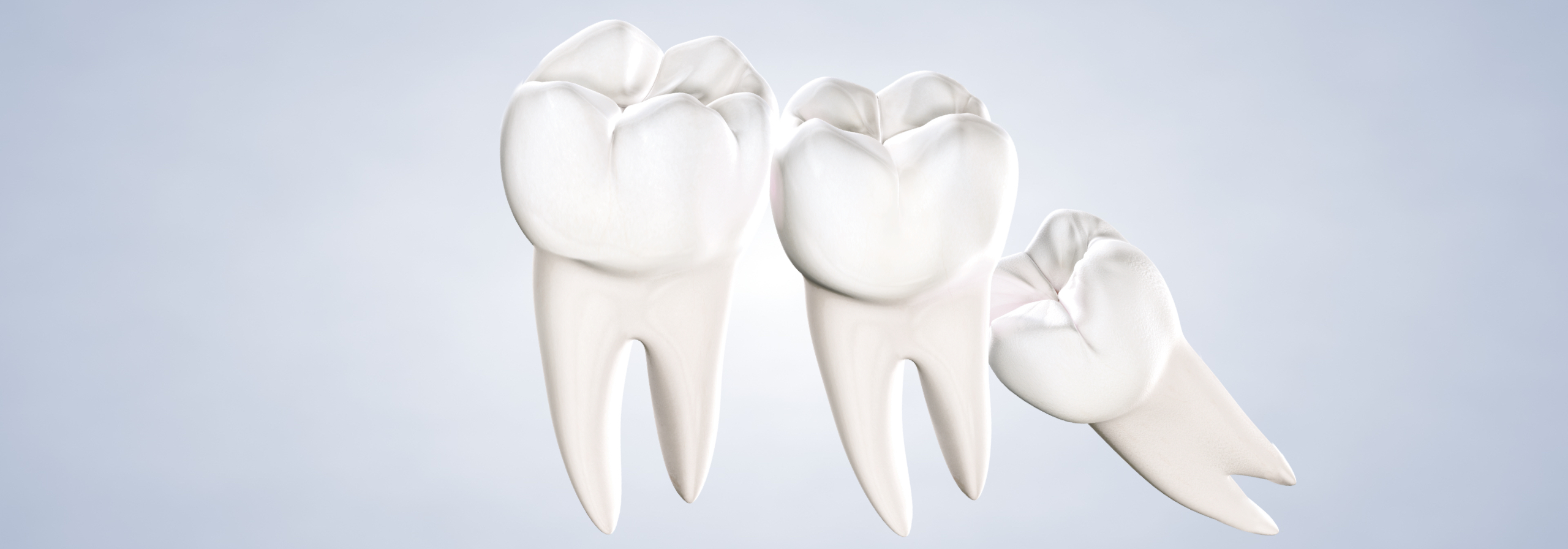
When you need wisdom teeth removed, there are multiple providers to choose from. These include general dentists, dental clinics specializing in wisdom teeth removal, and oral and maxillofacial surgeons. It is important to understand that not all dental specialists undergo the same training in order to offer this service.
Oral surgeons are the only dental specialists who are recognized by the American Dental Association as qualified oral surgery specialists. Every oral surgeon has received at least 4 years of extensive surgical training in a hospital-based surgical residency program. Their training focuses on the bone and soft tissues of the face, mouth, and jaws. This makes them the most qualified experts to detect, diagnose, and manage conditions in these areas through a variety of surgical procedures.
There are many doctors operating as if they are oral surgeons or offer the full scope of oral surgery. Most general dentists work hand-in-hand with oral surgeons. However, a general dentist should not claim to provide the same scope of treatment as an oral surgeon.
Impacted wisdom teeth, or ones that are trapped beneath the gums, must be surgically removed. This should only be done by an expert. Oral surgery offices utilize 3D scanning, providing images of the mouth and face, whereas dental offices often use 2D X-rays. These advanced images assist in diagnosing issues, treatment planning, and ensuring optimal health care results.
While a dentist or oral surgeon can detect the presence of wisdom teeth, you should see an oral surgeon to have them removed. Learn more about what wisdom teeth are or the right time to have wisdom teeth removed.
Oral Surgeons: More Training and Anesthesia Options
When undergoing any procedure, it is important that your medical provider is able to address any problems that may arise. When you see an oral surgeon, you have peace of mind that your health and safety are constantly monitored throughout treatment.
Oral surgeons are the only dental professionals trained and qualified to administer all types of anesthesia and sedation. This includes local anesthesia, nitrous oxide (laughing gas), IV sedation, and general anesthesia. Most general dentists can only administer local anesthesia or nitrous oxide. When a patient requires more advanced sedation, the dentist will refer the patient to an oral surgeon.
Do I Need to Have Wisdom Teeth Removed?
Experts recommend having wisdom teeth removed because there is not enough room in the mouth for an extra set of molars. These teeth, also called third molars, can cause numerous health problems such as pain, infection, cysts, tumors, dental shifting, and more. Severe infection can progress to gum disease or tooth decay, damaging the health of your other teeth. By having third molars removed, you protect your oral health from these issues.
Wisdom teeth often appear between the ages of 17 and 25. This is the ideal time to have these teeth pulled because they have not fully developed, therefore surgery and recovery is smoother. While early extraction is ideal, you can have your wisdom teeth removed at any age.
After wisdom tooth extraction, your oral surgeon will guide you through your recovery with detailed instructions. These will include diet recommendations, how to clean and rinse your mouth, and how to prevent painful dry socket from occurring. This is where the blood clot inside the healing tooth socket becomes dislodged.
Choosing the Right Oral Surgeon
There are many oral surgeons in your area, but choosing the right one will yield the most optimal experience and results. Some oral surgeons are board-certified, and others are not. Being board-certified means the surgeon has fulfilled all requirements of the American Board of Oral and Maxillofacial Surgery, a prestigious organization that recognizes only the top oral surgeons.
To qualify, a surgeon must undergo peer evaluation and show adequate knowledge and skill in the field. Board-certified surgeons are held to the highest standard of care to uphold their certification.
Surgeons who are not board-certified are still highly skilled oral surgeons. Many surgeons are members of other organizations which demonstrate their expertise in their specialty. Examples include the National Dental Board of Anesthesiology, the American Dental Association, the American Board of Cosmetic Surgery, and many others.
Research the top oral surgeons in your area and look at their education, training, and professional affiliations. These factors will help you select the right surgeon to remove your wisdom teeth.
For the most optimal long-term results and support during wisdom tooth removal, choose a skilled oral surgeon. Wisdom Teeth Only by Specialists is your resource for finding the right oral surgeon near you. Browse our listings or search in your area to find your wisdom teeth removal specialist.